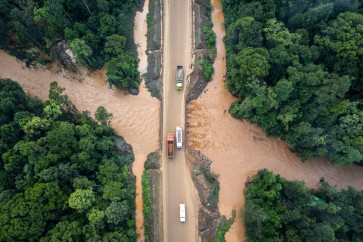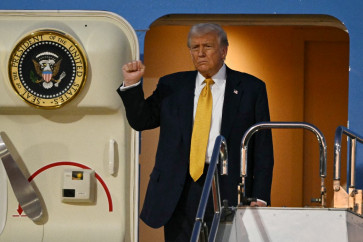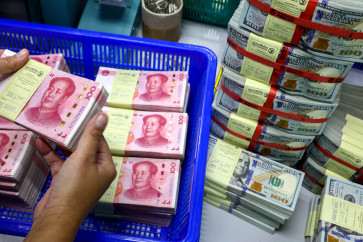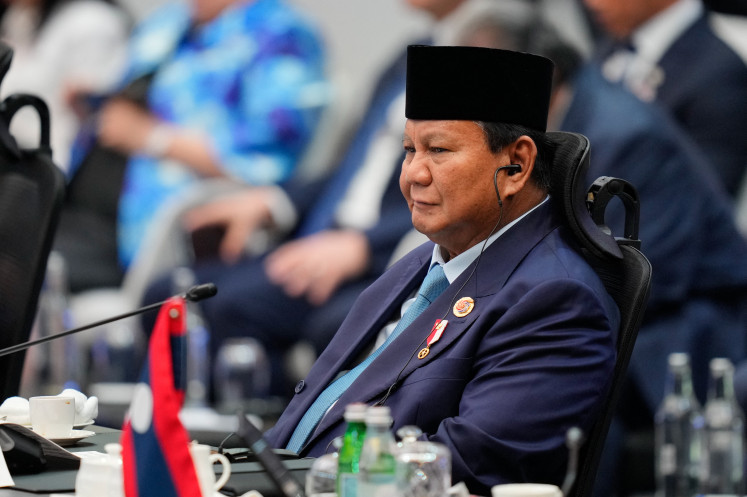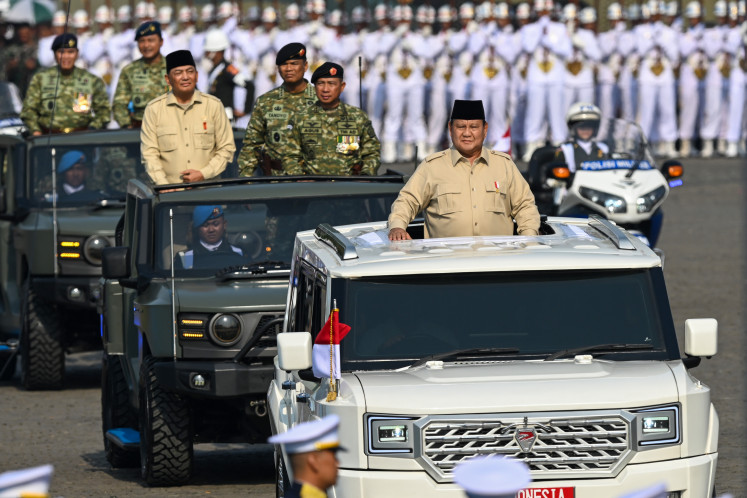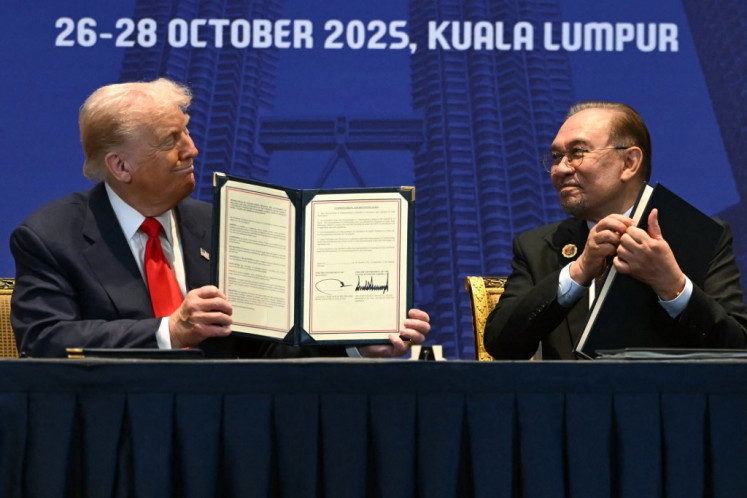Popular Reads
Top Results
Can't find what you're looking for?
View all search resultsPopular Reads
Top Results
Can't find what you're looking for?
View all search resultsDiscourse: Marty lays out foreign policy priorities for 2013
As Indonesia takes over chairmanship of the Asia-Pacific Economic Cooperation (APEC) in 2013, continuity in foreign policy will be paramount in handling regional dynamics as well as past and recent disputes
Change text size
Gift Premium Articles
to Anyone
A
s Indonesia takes over chairmanship of the Asia-Pacific Economic Cooperation (APEC) in 2013, continuity in foreign policy will be paramount in handling regional dynamics as well as past and recent disputes. Foreign Minister Marty Natalegawa talks to The Jakarta Post’s Yohanna Ririhena and Novan Iman Santosa on the issues involved. Below are excerpts from the interview:
Question: If 2011 was the year of ASEAN and 2013 will be the year of APEC, how will 2012 be remembered?
Answer: In 2011, we chaired ASEAN and in 2013 we are chairing APEC. The most important point to underscore is that there is always continuity in tackling regional issues. In other words, the kind of issues that we promoted throughout our ASEAN chairmanship continued through 2012 and will continue in 2013. Likewise, prior to our chairing APEC, we have begun to pursue certain efforts within APEC. All these efforts are continual. It is a process.
For us in 2012, our main preoccupation for ASEAN, for example, was to ensure that the agenda we introduced in 2011 remained a high priority. That meant making significant progress on building the ASEAN Economic Community; after all, 2015 is only around the corner.
First, we wanted to ensure that progress toward the ASEAN community continued to keep pace during 2012. Second, our ASEAN priority in 2011 continued in 2012; namely, the maintenance of regional peace, security and stability. Third, we aimed to set ASEAN in the global community of nations. Those three priorities for ASEAN in 2011 continued through 2012; likewise for APEC in 2013. We have a whole set of priorities for 2013, especially in promoting economic resilience in our region.
What are the primary foreign policy objectives for 2013?
We must always remember that the key is to ensure that our region remains stable and prosperous as it has been for so many years; whether that is promoted through ASEAN, APEC, the East Asia Summit, ASEAN+1 or other bilateral interactions. Our primary objective must be to ensure that our region remains peaceful and stable.
That kind of sentiment has been heard throughout 2011 and 2012. When challenges emerged, such as disputes over the South China Sea, we exercised leadership. This priority will continue in 2013, ensuring that our region remains peaceful.
Many people have praised your diplomacy and Indonesia’s in 2012 as a regional stabilizer. Do you think that is the kind of role we should adopt more frequently in the future?
I think so, yes. Indonesia has consistently stated its role and position as part of the solution to many of the region’s problems and challenges. We have played this role in many situations, such as the Thailand-Cambodia conflict, the Myanmar issue, the South China Sea. I think this is a role that we are going to continue to play in a positive way. Not only in dealing with specific problems in our region, but also in establishing norms and principles to deal with the problems that we encounter.
Regional tensions have increased markedly over the past year. Do you think these will abate in 2013 or will they increase further?
In our view, our region is at a critical juncture; there is a sense that we are now at a point where there are more tensions, more potential for instability due to the situation in the South China Sea, the East China Sea and so on, plus the larger issue of relations between major countries in our region.
We have no way of looking into a crystal ball and predicting what will happen in 2013. What we can do, however, is to provide the framework and the principles to ensure that if there are difficulties, if there are incidents, they can be managed and contained.
In this way, our region is actually now a far better place than it was in the past. In 2011, Indonesia initiated the admission of Russia and the United States to the East Asia Summit. That was a result of our initiative. The purpose was to ensure that engagement with these two countries was in accordance with the norms and principles that we have set for the region. Things must be done within a certain framework. And when we pushed for the code of conduct on the South China Sea, it was also part and parcel of creating norms for the peaceful settlement of disputes.
That is why we are pushing hard for the adoption of this code of conduct as well as the Bali Principles for the East Asia Summit that we created in 2011. They are similar to the Treaty of Amity and Cooperation (TAC), but in these cases they would apply to all East Asia Summit participants.
The idea is to instill the principle of peaceful dispute settlement among those East Asia Summit countries that are not ASEAN members. In other words, what we are seeing now is an effort to build a framework and to introduce principles and norms so that, whatever problems we may encounter in 2013, diplomatic options such as dialogue and negotiations are always forwarded as the first option.
The year 2013 will witness the countdown before the presidential election. How much will domestic politics affect foreign policy?
There is always connectivity between the internal and external. In many instances, we speak of “inter-mestic”, meaning international and domestic factors becoming one continuous and integrated hub. There are a number of issues where links between the international and domestic are obvious, such as the protection of our nationals overseas, counterterrorism, the fight against corruption, human rights promotion and so on.
In terms of the election in 2014, I don’t think it will affect Indonesian foreign policy or our international outlook in any significant way. The world knows we are having an election in 2014. It will not impact in any negative way on our foreign policy because we have learned how to build seamlessly among successive governments so that our internal political development does not detract from our foreign policy outlook.


